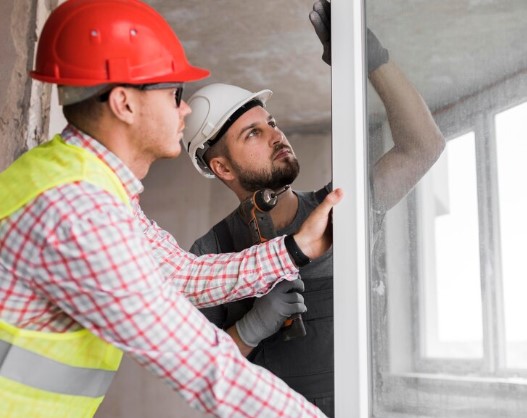When it comes to maintaining your home, the smallest details can often have the biggest impact. One such detail is caulking—something many homeowners overlook until water damage, drafts, or mould begin to show up. Whether you’re sealing your bathroom tiles or weatherproofing your windows, caulking plays a vital role in protecting your home.
But the question remains: should you attempt this yourself, or hire professional caulking contractors in Melbourne? This article will guide you through the pros and cons of both options, so you can make the best decision for your home and budget.
What Is Caulking and Why Is It Important?
Caulking Services is the process of sealing joints or seams in various structures and piping. It’s commonly used to prevent air leaks and water penetration around windows, doors, bathtubs, and sinks. A well-done caulking job enhances your home’s energy efficiency, helps prevent mould growth, and improves its overall appearance.
However, not all caulking jobs are created equal. The type of caulk, the area being sealed, and the quality of the application all matter—and that’s where the DIY vs. professional debate begins.
DIY Caulking: Is It Worth It?
Many homeowners are tempted to grab a caulking gun and get to work themselves. With hundreds of tutorials available online and caulking products readily sold at hardware stores, DIY can seem like the obvious choice. Here are the pros and cons.
✅ Pros of DIY Caulking:
-
Cost-Effective:
The most appealing reason to DIY is saving money. Caulk is inexpensive, and most tools are affordable. -
Convenience:
You can do it on your own schedule without waiting for an appointment. -
Satisfying:
There’s a unique satisfaction in completing a home repair with your own hands.
❌ Cons of DIY Caulking:
-
Steep Learning Curve:
It looks easy—but getting a smooth, effective seal requires practice and patience. Poor technique can lead to messy finishes or ineffective seals. -
Wrong Materials:
Many DIYers use the wrong type of caulk for the job. Silicone, acrylic, polyurethane—each has specific applications. The wrong choice may not last or could even cause damage. -
Time-Consuming:
Removing old caulk, cleaning surfaces properly, applying the new caulk, and ensuring a neat finish can be more time-intensive than expected. -
Potential for Mistakes:
A bad seal can lead to water leaks, mould growth, and costly repairs down the line. In high-moisture areas like bathrooms and kitchens, this can be especially problematic.
Why Hiring Professional Caulking Contractors in Melbourne Makes Sense
Hiring experienced caulking contractors isn’t just about saving time. It’s about getting the job done right the first time, with the correct materials and methods. Professionals bring knowledge, experience, and tools that most DIYers don’t have.
✅ Benefits of Professional Caulking Services:
-
Expertise in Material Selection:
Professional contractors know which type of caulk works best for specific surfaces and conditions—ensuring longer-lasting results. -
Superior Finish:
A clean, neat bead of caulk doesn’t just look better; it performs better. Contractors are trained to achieve a consistent, polished appearance. -
Time-Saving:
What might take you an entire weekend, they can finish in a few hours—with better results. -
Comprehensive Service:
Many caulking contractors in Melbourne also offer joint sealing, waterproofing, and surface prep—ensuring a thorough job. -
Guaranteed Workmanship:
Reputable companies often provide warranties or guarantees on their work, giving you peace of mind.
When Should You Absolutely Call a Professional?
While some basic caulking jobs are DIY-friendly, there are situations where professional help is the smarter—and safer—choice.
🚫 Complex or Large-Scale Projects:
-
Re-caulking a whole house’s windows or bathrooms
-
Sealing exterior gaps, especially upper-level or hard-to-reach areas
-
Weatherproofing before winter
🚫 Structural Concerns:
If water damage has already occurred or you suspect a deeper issue (like mould or leaks behind walls), a caulking contractor can assess and address the situation before it worsens.
🚫 Repeated DIY Failures:
If you’ve tried DIY and the caulk keeps cracking, peeling, or failing to adhere, it’s time to call in the pros.
What to Look for in a Caulking Contractor
Not all caulking contractors in Melbourne are created equal. When hiring a professional, keep these tips in mind:
-
Check Experience: Look for companies or tradespeople with at least a few years of experience in caulking and sealing.
-
Read Reviews: Online reviews on Google or local directories can tell you a lot about service quality.
-
Ask About Materials: A good contractor will explain which type of caulk they’re using and why.
-
Request a Quote: Don’t be afraid to get quotes from a few different services to compare pricing and scope of work.
-
Check for Guarantees: Warranties or guarantees on workmanship show a contractor stands behind their work.
Cost Comparison: DIY vs. Professional Services
-
DIY Costs: Around $15–$50 depending on tools and materials.
-
Professional Services: Typically range from $200–$600 for an average home project, depending on size and complexity.
While DIY might seem cheaper upfront, factor in your time, the potential for mistakes, and any follow-up repairs that may result from poor sealing.
Final Thoughts: Should You DIY or Hire?
If you have a small area to caulk—like around a bathroom sink or a single window—DIY can be a rewarding and cost-effective option, especially if you’re handy and patient.
However, for large-scale jobs, high-traffic or wet areas, or if you simply want a long-lasting and polished result, hiring professional caulking contractors in Melbourne is the better choice. It’s an investment in your home’s protection, energy efficiency, and long-term value.









